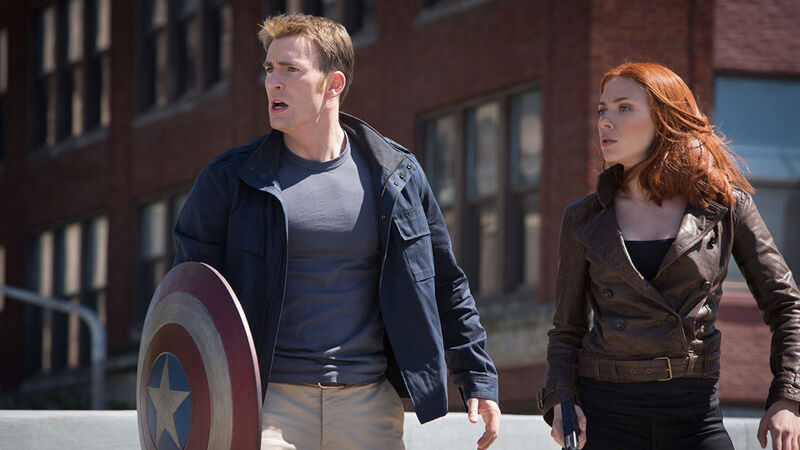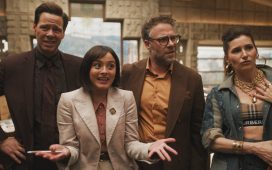The Marvel Cinematic Universe has spanned nearly two decades, and each entry has varied in tone. Some have gone for the straightforward superhero story, while others have used the universe as simply a backdrop to talk about bigger issues. 2014’s Captain America: The Winter Soldier is one film that did that, making it almost certainly one of the reasons Thunderbolts* exists.
As a vehicle for a spy/espionage thriller about the lengths the government can go to ‘protect’ the citizens they deem worth saving, The Winter Soldier has remained high on the list of best Marvel films, and it isn’t difficult to see why – it’s all down to the type of complex characters that lead the story.
A few other MCU films have attempted this, but Thunderbolts* is the first one to do it successfully. It’s fun, action-packed, and certainly enough to satiate a superhero itch, even in this saturated climate. Under the surface, though, it is much more than that. The two main characters in Thunderbolts* are not just beloved antiheroes. Instead, they explore the themes of grief, depression, and how we deal with trauma in great detail.

Disney / Marvel Studios
That, however, is not to say that WandaVision and Doctor Strange and the Multiverse of Madness didn’t do these things: They did. But they did so in a very formulaic superhero way, which isn’t a bad thing! It was good for those who are fans of the universe, but it may not have appealed to the masses in the way that The Winter Soldier did.
Marvel works best when it tries new things. Thor: Ragnarok, for example, did a complete 180 pivot from the more sombre-but-occasionally-funny tone of the first two Thor instalments, and did so successfully. Thunderbolts* certainly felt like it was a shot-in-the-dark film from a studio pretending they weren’t reeling from a string of lukewarm receptions. It doesn’t feel like it’s going to stand out, but it does. Its heart is certainly one of those reasons.
Minor spoilers for Thunderbolts* below
The film begins with Yelena Belova (Florence Pugh) standing at the edge of a cliff and talking about how it’s been difficult to find joy and fulfilment in her life. As we meet our other antiheroes, it’s clear that she is not the only one with demons and issues with emptiness.
She’s an assassin, but maybe she’s tired of being that. Much of the marketing for Thunderbolts* leaned on how this was an unlikely group that, theoretically, shouldn’t work. But when the common denominator is feeling like you’re on the outskirts of society, things come together much quicker than you realise.
The Winter Soldier is about displacement, but physically
In The Winter Soldier, we see Steve Rogers (Chris Evans) struggling to find a place in the modern world where he fits in. He tries new things, listening to suggestions from others, but he is still very much a man out of place with nothing to tether him to this modern version of New York. He looks for glimpses of what he knew seventy years ago to no avail… until he finally sees the ghost of his long-thought-dead best friend, Bucky Barnes (Sebastian Stan).
Though never explicitly stated (much like it isn’t in Thunderbolts*), it would not be a stretch to consider Steve depressed as he continues to deal with decades worth of anguish. And with how depression was handled in Steve’s day, it isn’t surprising that perhaps he doesn’t quite know what he’s dealing with. We see much of the same throughout Thunderbolts*.

Disney
Much like The Winter Soldier, it’s a commentary that happens to involve superheroes. It is also interesting to think about Bucky’s place in both. Thunderbolts* allows us to see him as somebody far enough removed from the events of ten years ago that it’s almost a shock to remember that he was the Winter Soldier.
Back then, he was dealing with trauma, though it was in intermittent flashes because of his programming. He never really forgot, though, and that much is evident by how hard he is working as a senator to expose Valentina Allegra de Fontaine (Julia Louis-Dreyfus). It echoes Yelena’s desire to become more than an assassin and work towards rehabilitating that image.
However, as Bucky says later in the film, you can only run from your past for so long. You have to face it eventually, otherwise you won’t heal. We can recall the post-credits scene in The Winter Soldier of Bucky doing just that when he goes to the Captain America exhibit at the Smithsonian. It helped jog his memory, yes, but it was also an exemplary display of strength on his part.
One of the best things that Thunderbolts* does is refer to these issues- depression, trauma, grief – as a void. It’s a little on the nose, sure. But in this case, it works, as anybody who has experienced any of those things knows. Bucky is a prime example of that, and I wish his story had been more of a focus in a film like Thunderbolts*. Arguably, he has one of the most damaged pasts outside Yelena – and that could have dovetailed well with hers.
The most important takeaway from this film is that you’re not alone, and it goes to great lengths to showcase it. Steve had Sam and Natasha; the Thunderbolts* (and Bob [Lewis Pullman]) have each other. That’s what matters.






